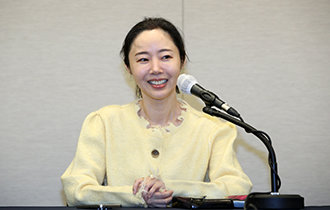[Opinion] The Constitutional Court and the Ex-ruling Party
[Opinion] The Constitutional Court and the Ex-ruling Party
Posted November. 11, 2008 09:21,
A countrys power lies in its legislative, executive and judicial branches. The Constitutional Court plays a key role in the judiciary and has the same rank as the Supreme Court, the highest court in the country. The chief justice of the Constitutional Court is as influential as that of the Supreme Court, and the Constitutional Court has more than 10 high-ranking officials including eight judges and administrative heads. Political orientation is thus inevitable since the president, chief justice of the Supreme Court, and the National Assembly appoints three judges each. Nevertheless, the Constitutional Court should be politically neutral and independent.
The status of the Constitutional Court and the Supreme Court varies by nation. In Germany, the Constitutional Court is superior to the Supreme Court. The United States has only the Supreme Court. In Korea, the Committee on Constitutional Affairs and the Supreme Court had the rights to decide a law unconstitutional until the Constitutional Court was established in 1988. That means Korea effectively has a 20-year history of constitutional review. The status of the Constitutional Court has risen in a short time due to high-profile cases such as the Capital Transfer Act and the impeachment of former President Roh Moo-hyun.
When only functions are taken into consideration, the Constitutional Court is certainly superior to the Supreme Court. The Supreme Court can interpret and apply laws enacted by the National Assembly, but the Constitutional Court has the power to immediately render laws ruled unconstitutional ineffective. That means the Constitutional Court is the guardian of the Constitution. The main opposition Democratic Party, however, is pressuring the Constitutional Court to postpone its ruling on the comprehensive property tax. Given that the party forms part of the National Assembly, one of the three branches of the government, two constitutional bodies are fighting each other.
The Democratic Party is urging the Constitutional Court to rule on the comprehensive property tax. A week-long fact-finding inquiry also begins today on Strategy and Finance Minister Kang Man-soos controversial statement implying that he yielded influence over the court`s decision. The opposition party said the court should postpone its announcement to make a fair decision. The partys irrational moves, however, such as fixing the inquiry period without consideration for the Constitutional Courts plan and urging a delay in the decision, could damage the independence of the Constitutional Court. The party apparently wants to prevent the court from ruling the tax unconstitutional through political pressure. Most sitting justices were appointed when the Democratic Party was the ruling party. The partys attempt to pressure the Constitutional Court could invite an unexpected misunderstanding.
Editorial Writer Yuk Jeong-soo (sooya@donga.com)







